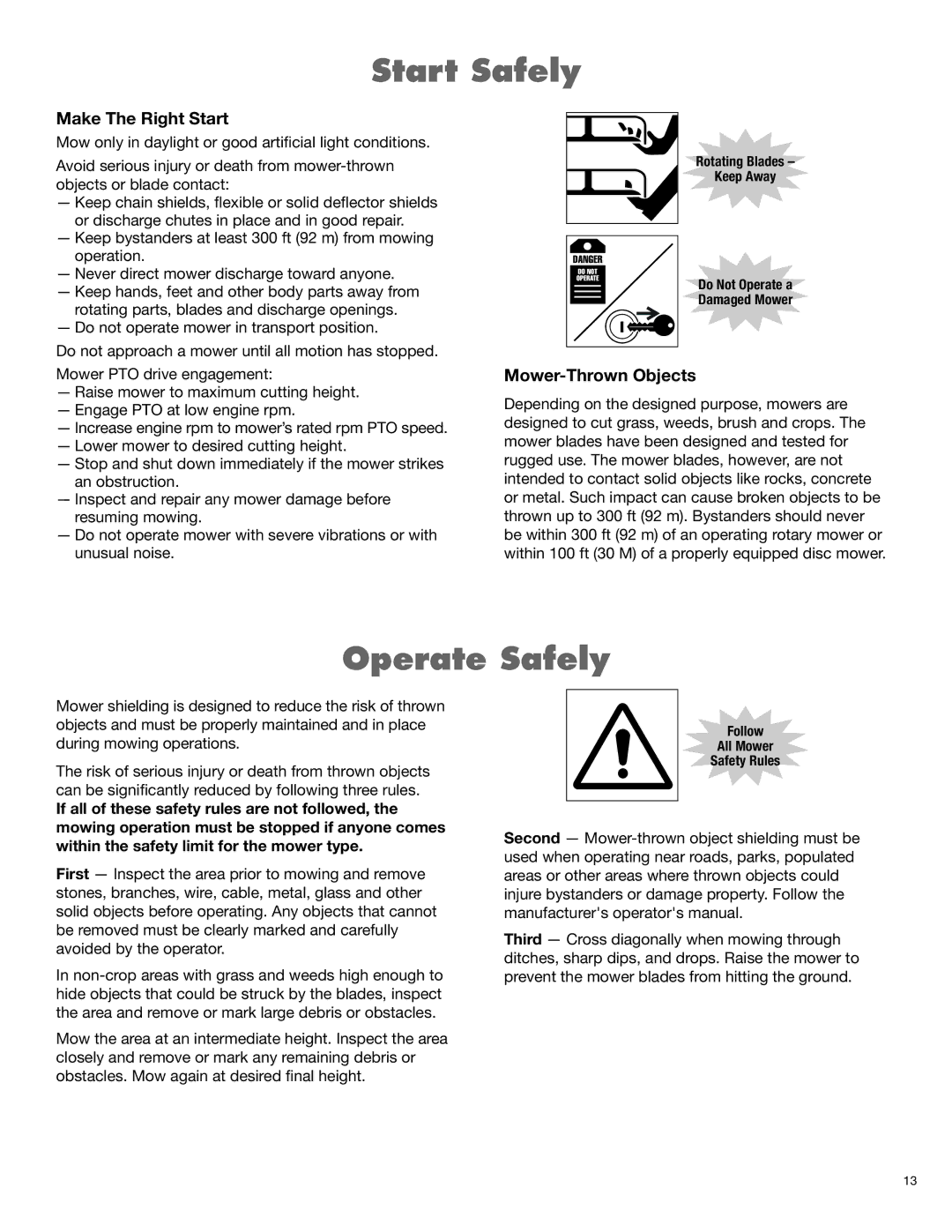
Start Safely
Make The Right Start
Mow only in daylight or good artificial light conditions.
Avoid serious injury or death from
—Keep chain shields, flexible or solid deflector shields or discharge chutes in place and in good repair.
—Keep bystanders at least 300 ft (92 m) from mowing operation.
—Never direct mower discharge toward anyone.
—Keep hands, feet and other body parts away from rotating parts, blades and discharge openings.
—Do not operate mower in transport position.
Do not approach a mower until all motion has stopped.
Mower PTO drive engagement:
—Raise mower to maximum cutting height.
—Engage PTO at low engine rpm.
—Increase engine rpm to mower’s rated rpm PTO speed.
—Lower mower to desired cutting height.
—Stop and shut down immediately if the mower strikes an obstruction.
—Inspect and repair any mower damage before resuming mowing.
—Do not operate mower with severe vibrations or with unusual noise.
Rotating Blades –
Keep Away
Do Not Operate a
Damaged Mower
Mower-Thrown Objects
Depending on the designed purpose, mowers are designed to cut grass, weeds, brush and crops. The mower blades have been designed and tested for rugged use. The mower blades, however, are not intended to contact solid objects like rocks, concrete or metal. Such impact can cause broken objects to be thrown up to 300 ft (92 m). Bystanders should never be within 300 ft (92 m) of an operating rotary mower or within 100 ft (30 M) of a properly equipped disc mower.
Operate Safely
Mower shielding is designed to reduce the risk of thrown objects and must be properly maintained and in place during mowing operations.
The risk of serious injury or death from thrown objects can be significantly reduced by following three rules.
If all of these safety rules are not followed, the mowing operation must be stopped if anyone comes within the safety limit for the mower type.
First — Inspect the area prior to mowing and remove stones, branches, wire, cable, metal, glass and other solid objects before operating. Any objects that cannot be removed must be clearly marked and carefully avoided by the operator.
In
Mow the area at an intermediate height. Inspect the area closely and remove or mark any remaining debris or obstacles. Mow again at desired final height.
Follow
All Mower
Safety Rules
Second —
Third — Cross diagonally when mowing through ditches, sharp dips, and drops. Raise the mower to prevent the mower blades from hitting the ground.
13
